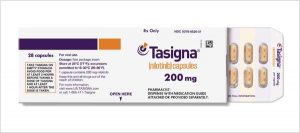 In a precedent case before the Russian Intellectual Property Court, the judges pointed out that mere registration of a generic drug long before the patent expiry may constitute a threat of infringement that is prohibited under domestic law. This position in this case may result in an extra defense against unfair registrations.
In a precedent case before the Russian Intellectual Property Court, the judges pointed out that mere registration of a generic drug long before the patent expiry may constitute a threat of infringement that is prohibited under domestic law. This position in this case may result in an extra defense against unfair registrations.
On 24 April 2018, the Intellectual Property Court published its Decision in case A41‑85807/2016 between Swiss-based Novartis AG and local generic Nativa LLC.
The relevant facts were as follows: In 2008 Novartis obtained an MA for its blockbuster drug Tasigna (INN Nilotinib). A few years later, Nativa obtained an MA for its generic drug Nilotinib-Nativ (same INN) and has put efforts for the launch of the generic drug (in particular, registered the price before the MoH and applied for the reimbursement), regardless of Novartis’ effective patent for Nilotinib.
In December 2016, Novartis sued Nativa for an alleged threat of the patent infringement, which is deemed illegal under the Russian legislation (Civil Code, art. 1252).
The commercial courts of the first and appeal instances found in favor of Novartis and restrained any use of Nativa’s drug before the patent expiry.
In April 2018, The IP Court upheld the inferior courts decisions. The panel of judges carefully analyzed the notion of threat of infringement and set out a few important criteria as follows:
- Term test (the MA is obtained 3+ years before the patent expiry)
In Russia, the MA holder’s failure to sell and market the drug for 3 consecutive years results in revocation of the MA (Law on Circulation of Drugs, art. 61). It was apparent that Nativa’s attempt to register the generic drug (05.10.2016) would have no sense, if Nativa never intended to sell its generic drug before the patent expiry (04.07.2023)
- Actions test (consecutive preparatory actions to sell and market the drug has been taken)
The list of such actions is open-ended, but may comprise (1) conduction of bioequivalence studies, (2) obtaining the MA, (3) registration of price, (4) application for the reimbursement.
To evidence threat of infringement, the patent holder does not have to present commercial documents on sales of the generic drugs (invoices, bills, tender results). Mere demonstration of real risk of infringement shall suffice.
Based on these arguments, the IP Court restrained to market and sell the copycat of Tasigna in Russia until the patent expiry.
Starting from 2009, when the Supreme Commercial Court restrained a generic drug for the first time (Novartis AG vs. Farm-Syntez, case А40-65668/2008), the inferior courts used to turn a blind eye to commercialization of generic drugs until the patent expiry.
In doing so, the courts used to rely on Bolar Principle interpreting such clearly profit-driven actions as registration of price to be preparatory actions that cannot bear threat of infringement (Celgene Corporation vs. Farmsyntez, case А40-170151/2017).
Evidentially, the IP Court’s approach in Novartis vs. Nativa (2018) is far more balanced for the industry. On the one hand, it does not impede good faith generic companies to prepare for their launches in advance (following the Term and Action tests). On the other hand, patent holders have obtained an effective remedy against bad faith practices of generic companies. Finally, the IP Court’s explanations on the burden of proof will make current and upcoming pharma patent disputes more predictable.
_____________________________
To make sure you do not miss out on regular updates from the Kluwer Patent Blog, please subscribe here.
Kluwer IP Law
The 2022 Future Ready Lawyer survey showed that 79% of lawyers think that the importance of legal technology will increase for next year. With Kluwer IP Law you can navigate the increasingly global practice of IP law with specialized, local and cross-border information and tools from every preferred location. Are you, as an IP professional, ready for the future?
Learn how Kluwer IP Law can support you.



